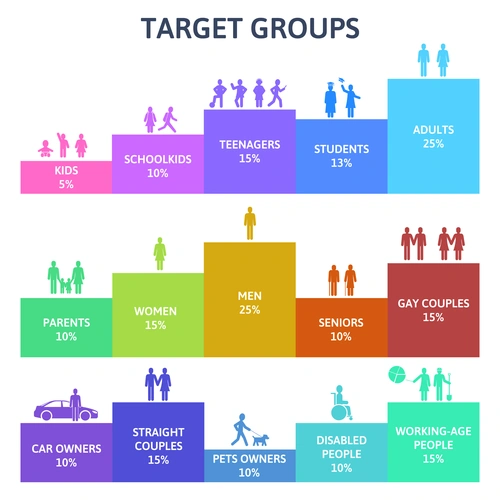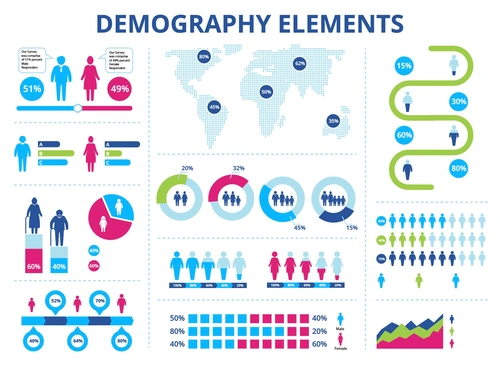The Importance of Demographic Survey Questions in Surveys
Learn why a foundational component of surveys is demographic questions, which enable you to understand the nature and characteristics of your respondents
Why AI Tools Built by Researchers Make a Difference
Learn more about AI-powered market research tools and why tools build by researchers for researchers are leading the charge. By: Erik Larson Date:...
Customer Survey Best Practices: Unlocking Insights Through Your Customer List
Learn how to leverage customer lists for market research. Explore best practices, address low response rates, and drive actionable insights. Date:...
Introduction
Surveys have long been instruments of understanding for market researchers, pollsters, academic, and government institutions. They provide insights into public opinion, market preferences, and the attitudes of varied populations. One of the foundational components of many surveys is the inclusion of demographic questions, which allow researchers to delve deeper into the nature and characteristics of their respondents.
But what is it that makes these demographic questions so essential? This post will explore the reasons behind the significance of demographic survey questions, provide examples, and outline the best practices for their application in consumer and B2B surveys.
The Significance of Demographic Survey Questions
Enhancing Data Depth and Context:
At its core, every survey seeks answers. But without context, these answers can often lack meaning. Demographic questions add a layer of depth, providing a backdrop against which other responses can be evaluated. By knowing who the respondent is in terms of age, gender, or occupation, one can more effectively understand the why behind their answers.

Segmentation and Targeted Analysis:
For businesses, segmentation is a powerful tool. It allows companies to tailor products, services, and marketing strategies to specific subsets of the population. By using demographic data from surveys, businesses can segment their audience and discern which groups respond best to which stimuli.
Tracking Longitudinal Changes:
Recurring surveys, such as annual industry polls or quarterly consumer satisfaction surveys, benefit immensely from demographic data. By understanding how different segments of the population change their opinions or habits over time, companies and organizations can adjust their strategies to better suit evolving needs.
Ensuring a Comprehensive Sample:
Without demographic questions, there’s no way to ensure that a survey’s respondents are truly representative of the larger population. This is critical in research settings where generalizability is essential.
Facilitating Comparative Studies:
Demographic data enable comparisons not just within a single survey, but across multiple surveys or even between different research studies. This cross-pollination of data can lead to richer insights and more robust
Examples of Demographic Questions:
- What is your age range?
- How would you describe your gender?
- Which ethnic or racial group do you identify with?
- What’s the highest level of education you’ve completed?
- What’s your current employment status?
- What is your estimated annual household income?
- Marital or relationship status?
- What is your religious affiliation, if any?
- Which city or region do you reside in?
- What field or industry is your occupation in?
- How many people live in your household?
- Do you have children?
- Which languages are you fluent in?
- Do you own or rent your place of residence?
- Any disabilities or special needs?

When to Use Demographic Questions
Demographic questions, while valuable, shouldn’t be used indiscriminately. They should be incorporated:
At the Beginning of the Survey: to segment respondents immediately and to qualify participants entering the survey and the manage quotas.
At the End of the Survey: to avoid influencing participants’ answers to subsequent questions and to limit the early termination of surveys before the principal data is gathered.
When there’s a clear purpose: Only use demographic questions if you have a genuine reason to segment or understand the data through that particular demographic lens.
To ensure representativeness: If you need to be sure that certain segments of the population are adequately represented in your survey results.
Best Practices in Different Survey Scenarios
Consumer Surveys:
Relevance is Key: Only ask demographic questions that have a direct relevance to the product or service.
Maintain Sensitivity: Questions regarding income, disabilities, and even marital status can be sensitive. Always provide an option for respondents to decline to answer.
Brevity: Consumers might not have the time or inclination to fill out long surveys. Limit demographic questions to those most pertinent particularly is you already have collected this information from them recently.
B2B Surveys:
Industry-specific Questions: Beyond the typical age or gender questions, B2B surveys might benefit from asking about the respondent’s job role, company size, or industry.
Clarity on Purpose: B2B respondents often want to know the reason behind a survey. Be transparent about why you’re asking specific demographic questions.
Higher Detail: Unlike consumer surveys, B2B respondents are more savvy and have a higher stake in the providing insights that lead to better business solutions, so they tend to be willing to provide more detailed demographic information if it’s relevant to the survey’s objectives
Let OvationMR Help You Keep Your Research Tracking on Course
In the world of surveys, demographic questions are more than just a backdrop; they’re powerful tools that add depth, context, and actionable insights to raw data. By understanding who is providing the answers, we gain a deeper comprehension of the answers themselves.
Whether it’s a consumer survey trying to understand purchasing habits or a B2B survey seeking to gauge industry trends, demographic data plays a pivotal role in enriching our insights and enhancing our strategic decision-making. As with all tools, demographic questions must be used with care, relevance, and respect for the respondent.
OvationMR Experts will ensure your studies are both efficient and effective, driving data-driven decisions in an ever-evolving marketplace.

Follow
OvationMR



